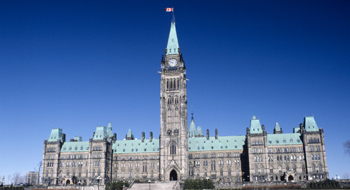
Last night’s “take-note” debate in the House of Commons saw all four federal political parties making sincere proposals, none of which would satisfy everybody. “Take-note” debates see the Commons form as the committee of the whole to discuss policy decisions before the government.
This debate essentially reprised the preceding one on Liberal Judy Sgro’s private member’s bill to establish a retirement income bill of rights. Sgro, noting that 200,000 seniors currently live in poverty, proposed the bill to help Canadians set aside sufficient funds for retirement.
The bill would allow Canadians without a “generous” defined benefit (DB) pension plan to participate in one, despite not belonging to a workplace pension plan—and 75% of private-sector workers don’t belong to a DB plan. State pensions, the Canada Pension Plan (CPP) and Old Age Security (OAS)/ Guaranteed Income Supplement (GIS) at best provide for a 30% replacement of pre-retirement insurance, she says.
For her, the key challenge is that 10.9 million Canadians will be retired by 2036, presenting an enormous social and fiscal burden.
“Canada Pension Plan is the best pension plan we have,” said Wayne Marston, NDP critic. “A voluntary supplemental plan won’t work, since only those who already have money will contribute.”
Ted Menzies, parliamentary secretary to Finance Minister Jim Flaherty charged with the pension reform brief, noted that the federal government has acted on reforms within the private-sector pensions plans under its jurisdiction—about 10% of the total; the rest are under provincial jurisdiction.
According to Menzies, the reforms, the first to be implemented since 1985, include full funding of federally regulated pension plans on windup; that pension sponsors be allowed to overfund plans rather than take contribution holidays; and, in the tax-policy area, the increase of tax expenditures for seniors relating to the age credit, the pension credit, income-splitting and the date of collapsing an RRSP into a Registered Retirement Income Fund (RRIF) or life annuity.
He found Sgro’s bill of rights bill full of generalities, but short on specifics. He also noted provincial priorities play a role too.
Bloc members, meanwhile, warned Ottawa against stepping into Quebec’s jurisdiction.
Wayne Marston, the NDP critic, supported the idea of a bill of rights, but argued for cutting corporate tax reductions to put more money into OAS, and defended a doubling of Canadian Pension Plan payouts. “Canada Pension Plan is the best pension plan we have,” he said. “A voluntary supplemental plan won’t work, since only those who already have money will contribute.”
In this, he agreed with Menzies’ presentation.
Research commissioned by the government and public consultations “suggested we explore a series of innovative proposals to build further on the strengths of Canada’s retirement income system. It also strongly suggested that we rule out certain other proposals, including a supplemental Canada pension currently advocated by the Liberal Party,” said Menzies. “The consensus of governments and public interest groups from across the political spectrum has been that this would be costly, ineffective and, ultimately, a misguided solution.”
The provinces have ruled out a voluntary supplemental CPP, unanimously, Menzies said.
Still, that doesn’t satisfy Sgro. She wants all workers to be able to contribute to a DB plan, regardless of employment status. She also wants the limits on how much workers can save in tax-protected schemes to be scrapped, though Menzies thinks that would benefit richer Canadians.
Marston adds that flexible limits on how much Canadians can accumulate in tax-sheltered accounts already exist. More than that, while it is assumed as a general rule that workers in retirement require 70% of their pre-retirement earnings, it has not been proven.
Intriguingly, all parties take heart in the historical success of the pension-retirement income system. But it has many parts, and many governmental participants.
So, beefing up OAS and CPP, encouraging Canadians to save and preventing pension plans from collapsing—the fate for 17,000 Nortel retirees—are all goals for the political parties that are not likely to be met soon.
